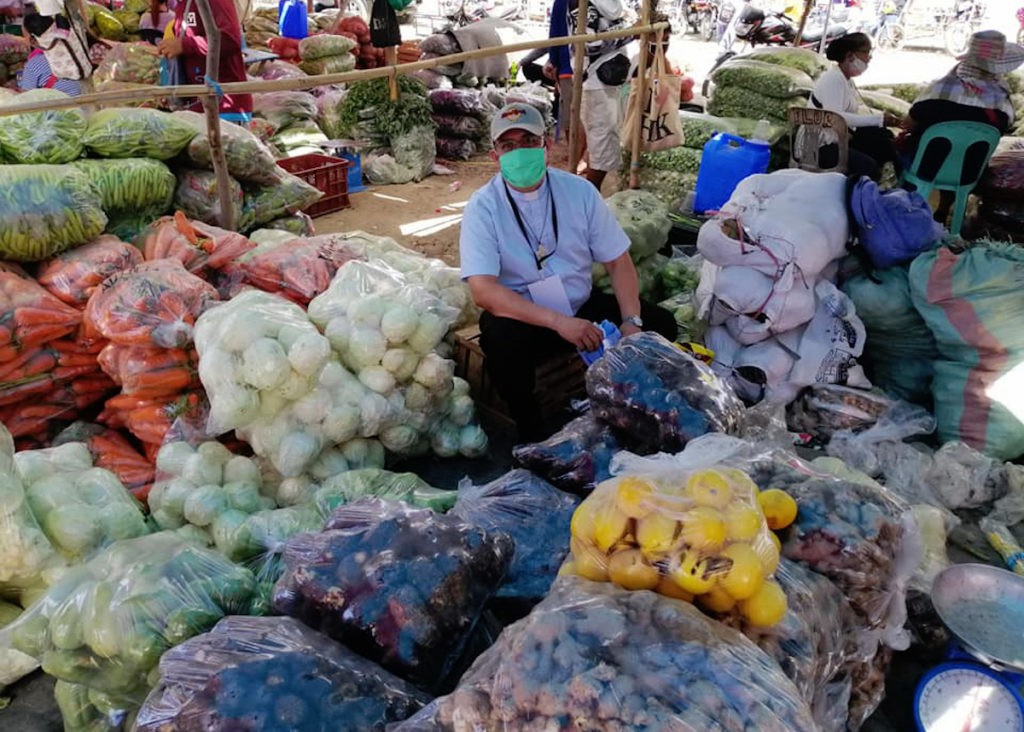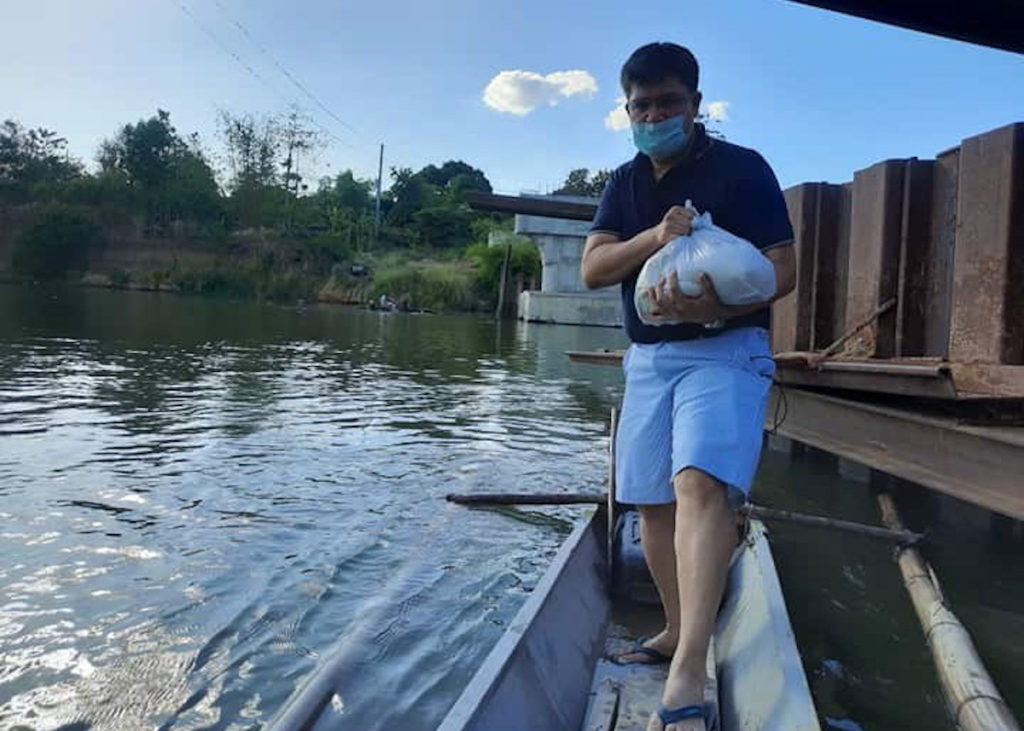In times of crisis, look for those willing to help. This was what’s in the mind of a missionary priest who has been running a rehabilitation center for drug dependents in the northern Philippines.
When the new coronavirus pandemic erupted and there was a shortage of personal protective equipment (PPE) for medical workers, Father Arnold Abelardo immediately moved into action.
He looked for people to train at least 50 former drug dependents, priests, nuns, and volunteers on how to make PPEs, face masks, and face shields.
After less than a month, the priest’s “Ako ang Saklay” community was able to deliver 6,000 face masks, 200 PPEs, and 500 face shields to medical front liners and police officers.
Responding to the need of the times is not new for the priest who belongs to the Sons of the Immaculate Heart of Mary congregation, also known as the Claretians after its founder, St. Anthony Mary Claret.
Father Abelardo established “Ako ang Saklay,” literally translated as “I am the crutches,” in 2014.
He was a missionary in Los Angeles, California, taking care of a soup kitchen for the homeless, when he developed a herniated disc in his spine that partially paralyzed his body.
He was flown back to the Philippines where received treatment from the Philippine Orthopedic Center, where he later served as its chaplain.
The priest said he established “Ako ang Saklay” after experiencing how hard it was to survive with no support, “no one to carry you, no one to embrace you.”
“Like crutches supporting the injured, I wanted to be of help, to carry others, to assist those in need,” he said.

‘War on drugs’
The center started as a source of livelihood for poor women in the village. When in 2016, the government launched its “war on drugs,” Father Abelardo started giving sanctuary and counseling to drug dependents who wanted to reform their lives.
“Our approach to drug rehabilitation is different,” said the priest. “We involve their families. We don’t imprison [drug dependents] from the reality of the world they have to face later on,” he said.
The center later got the support of the government and expanded to helping former migrant workers who have gone through difficult personal and financial circumstances.
On March 16, when the government imposed a lockdown aimed at containing the spread of the new coronavirus disease, Father Abelardo was quick to “call for sacrifice” from volunteers.
Gino, a former drug dependent, has been staying in the center for four months. He decided to stay even when he was given the option to go back home to his family.
“It’s sad because I am separated from my family, but I understand that this is necessary,” he said, adding that he was glad to help and do something for others.
The center provides for the families of the volunteers with Father Arnold personally delivering food packs to villages.
Aside from making PPEs, volunteers in the center also cook food for medical front-liners and police officers and soldiers manning checkpoints.
Father Abelardo has also conducted stress debriefing and “psychological first aid” to 245 students who were stranded at the Central Luzon State University in Nueva Ecija province due to the lockdown.
The priest said the needs of the students have been provided by the government and everything has been done “to make them feel safe” even if they are away from their families.

Father Abelardo is not new to working in the midst of challenging situations having responded to the eruption of Taal Volcano in January and to the devastation brought about by Super Typhoon Haiyan in 2013.
He said, however, that “the pain and suffering” that people feel is different each time, especially during the present health crisis.
“Usually, you go where the people are, you hold their hands, embrace them,” he said. “Now, it’s different,” he added.
“I cry, seeing the pain of the families being separated from their loved ones, especially from those who tested positive of the disease,” said Father Arnold.
He said his work is just part of the Church’s journey with the people. “The Church is alive during the lockdown not only in social media,” said the priest.
“The Church walks and journeys with the people,” he said, adding that just because community gatherings have been banned does not mean that the Church stops serving.
“It is alive and it is witnessing the true meaning of the resurrection of Jesus Christ among the faithful,” said Father Arnold.
He said that as the virus continues to spread, “we also spread kindness to humanity through the ministry of love.”






